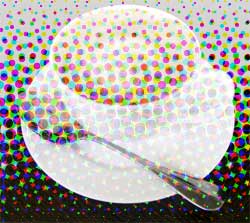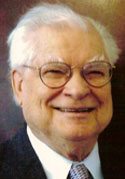Just in time
 Back in the old economy, if it was time for a little home baking, Mom might send me down the block to Don's Market for a can of sweetened condensed milk. Don would take out his can claw and hook me down one, and blow the dust off the top. If the shelf was bare, no matter--he'd order a year's supply at a time and keep the extra cases back in the stock room. These days nothing has a chance to gather dust. They teach just-in-time manufacturing and inventory in MBA school. Fedex has offices in Papua New Guinea. If you asked people what they really wanted from the Internet, they'd tell you they want the ability to download a cup of cappuccino and a ham sandwich, because they don't have time to leave the desk. Busy, busy, busy, knocking off the to-do list just in time. (Cappuccino, by the way, generates 22,600,000 search results on Google.)
Back in the old economy, if it was time for a little home baking, Mom might send me down the block to Don's Market for a can of sweetened condensed milk. Don would take out his can claw and hook me down one, and blow the dust off the top. If the shelf was bare, no matter--he'd order a year's supply at a time and keep the extra cases back in the stock room. These days nothing has a chance to gather dust. They teach just-in-time manufacturing and inventory in MBA school. Fedex has offices in Papua New Guinea. If you asked people what they really wanted from the Internet, they'd tell you they want the ability to download a cup of cappuccino and a ham sandwich, because they don't have time to leave the desk. Busy, busy, busy, knocking off the to-do list just in time. (Cappuccino, by the way, generates 22,600,000 search results on Google.)Paul Willcott was in the studio this morning, working on the audio book of his novella A Franklin Manor Christmas (which Joel assures him will be done "just in time" to accompany the print release). Paul asked if I had my Listening Post essay done yet, and I had to laugh. There were hours to go before the deadline. As usual, I hadn't a clue. He suggested something about Sundays, but writing about the day of rest requires more leisure than I have available. Besides, I had to write all the other stuff first.
Joel dropped by my digs later on, just in time to put the kibosh on a concert feature for the online section, but Kevin, also just in time, came up with an alternate feature from our reel-to-reel archive. This would have been a good time to have had a couple of essays in the can--back in the stock room, as it were. But that's 20th Century thinking. So here's a new one, just in time to make the email deadline.
Labels: procrastination, work, writing


